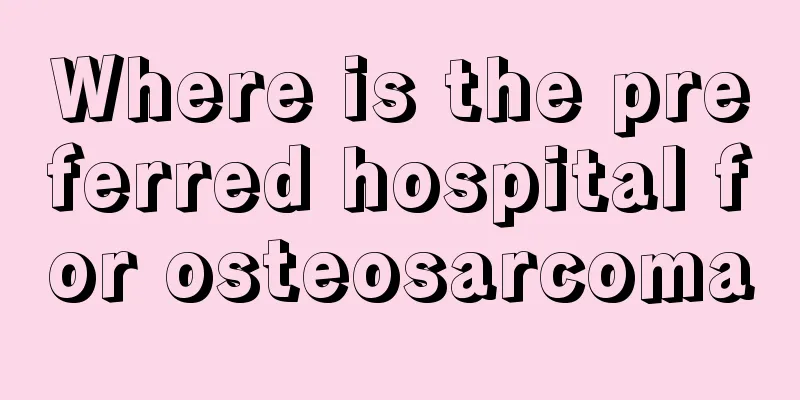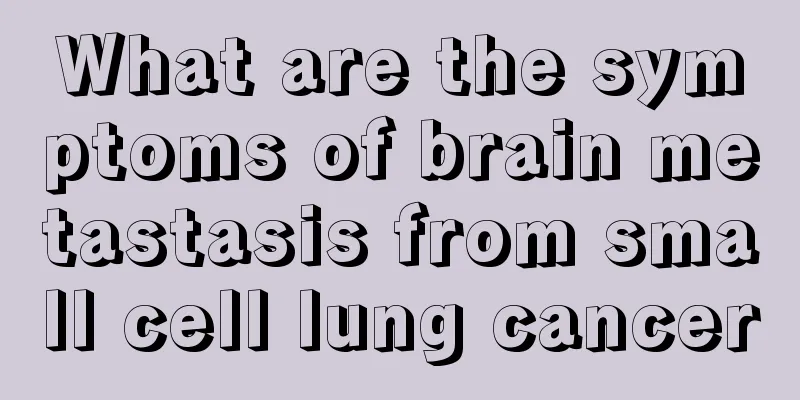The causes of sinus tachycardia are actually these

|
Studies have found that there are many causes of sinus tachycardia. Common ones include physiological factors, such as emotional excitement and drinking. In this case, no special treatment is required and the patient can recover in a short time. If it is a pathological factor, the condition will be serious. Common diseases include heart failure and hyperthyroidism. 1. Causes of disease 1. Physiological factors: Physical activity, emotional excitement, full meals, drinking strong tea, coffee, smoking, drinking, etc. of normal people can excite the sympathetic nerves and accelerate the heart rate. 2. Pathological factors (1) Heart failure: Especially in the early stages of heart failure, the heart rate often increases. (2) Hyperthyroidism: Most patients with hyperthyroidism have sinus tachycardia, with a heart rate generally between 100 and 120 beats/min. In severe cases, the heart rate can reach 120 to 140 beats/min. (3) Acute myocardial infarction: During the course of acute myocardial infarction, the incidence of sinus tachycardia can reach 30% to 40%. (4) Shock: Shock can cause sinus tachycardia. In mild shock, the heart rate can reach over 100 beats/min; in severe shock, the heart rate is even faster, exceeding 120 beats/min. (5) Acute myocarditis: Most patients may experience sinus tachycardia that is disproportionate to the increase in body temperature. (6) Other organic heart diseases: all may cause sinus tachycardia. (7) Sinus tachycardia may occur in cases of anemia, fever, infection, hypoxia, autonomic dysfunction, and after cardiac surgery. (8) Drugs: Drugs such as epinephrine and atropine can also cause sinus tachycardia. 2. Pathogenesis The occurrence of sinus tachycardia is mainly related to sympathetic nerve excitement and reduced vagal nerve tone. When sympathetic nerve excitement affects the pacemaker cells of the sinoatrial node, the rising speed of phase 4 is accelerated, the time to reach the threshold potential is shortened, and the heart rate is accelerated. 1. Physiological factors Physiological sinus tachycardia is an "adaptive" phenomenon. There are many factors that affect heart rate, such as normal human physical activity, emotional excitement, a full meal, drinking strong tea or coffee; smoking and drinking can excite the sympathetic nerves and accelerate the heart rate. Changes in body position, such as standing up, excite the sympathetic nerves and increase the heart rate; lying down, the heart rate slows down. Sinus tachycardia caused by physiological factors is often transient and short-lived. 2. Pathological factors (1) Heart failure: In heart failure, the heart rate often increases, which is one of the body's compensatory mechanisms to maintain cardiac output. In patients with heart failure, an increased heart rate has compensatory significance within a certain range. (2) Hyperthyroidism: Most patients with hyperthyroidism have sinus tachycardia. (3) Acute myocardial infarction: The incidence of sinus tachycardia is relatively high during the course of acute myocardial infarction. This is due to factors such as systemic stress response, increased catecholamine secretion, pain, tension, insufficient blood volume or concurrent infection, and fever in the early stage of the disease. If sinus tachycardia persists, it reflects a large infarction area, decreased cardiac output, left heart failure or necrosis, and poor myocardial healing and repair. (4) Shock: The degree of sinus tachycardia is often used as one of the indicators of the severity of shock. (5) Acute myocarditis: This disease causes sinus tachycardia, which is caused by acute inflammation of the myocardium leading to impaired cardiac function. (6) Anemia, fever, infection, hypoxia, autonomic dysfunction, and post-cardiac surgery: all can cause sinus tachycardia. For every 1°C increase in body temperature, the heart rate can increase by 12 to 15 beats per minute. In addition, transient sinus tachycardia may also occur when sympathomimetic drugs, such as epinephrine and ephedrine, are used to cause sympathetic nerve excitement, or when vagus nerve blocking drugs (such as atropine) are used to relieve the inhibition of the vagus nerve on the heart. |
<<: What's the matter with the black lines on the nails
>>: How to lower glycemic hemoglobin more effectively
Recommend
How to prevent bladder cancer
Prevention is better than cure, and this also app...
Organs corresponding to the tongue
If we feel unwell and go to the hospital for a ch...
What to do if the incision does not heal after colon cancer surgery
What should I do if the incision does not heal af...
Does wolfberry contain high sugar content
Wolfberry is high in sugar and tastes sweet, so m...
Don’t break into the 7 self-righteous new “calcium” reading red lights
In the long journey of life, bone health and calc...
Symptoms of testicular trauma pain
In life, we may encounter some unexpected events ...
What should I do if my baby has hemangioma on his tongue? Treatment of baby's tongue hemangioma
Hemangioma is very common in babies. The most com...
How to treat tick bites
Health status not only refers to the impact of so...
Complications after bladder cancer surgery
Complications after bladder cancer surgery? Bladd...
Can washing your face with milk really whiten your skin?
Washing your face with milk can indeed whiten you...
What are the most effective Chinese herbal medicines for relieving itching
Skin itching can be said to be very uncomfortable...
What are accessory breasts? Is having accessory breasts a precursor to breast cancer?
Many women have accessory breasts, which are slig...
What is the Acupoint Thread Embedding Method for Weight Loss?
As people's living standards improve, the num...
My back is itchy and there are bumps after scratching. What's going on?
I believe that many people have experienced itchy...
2 delicious soups for treating pancreatic cancer
Patients with early pancreatic cancer may have sy...









